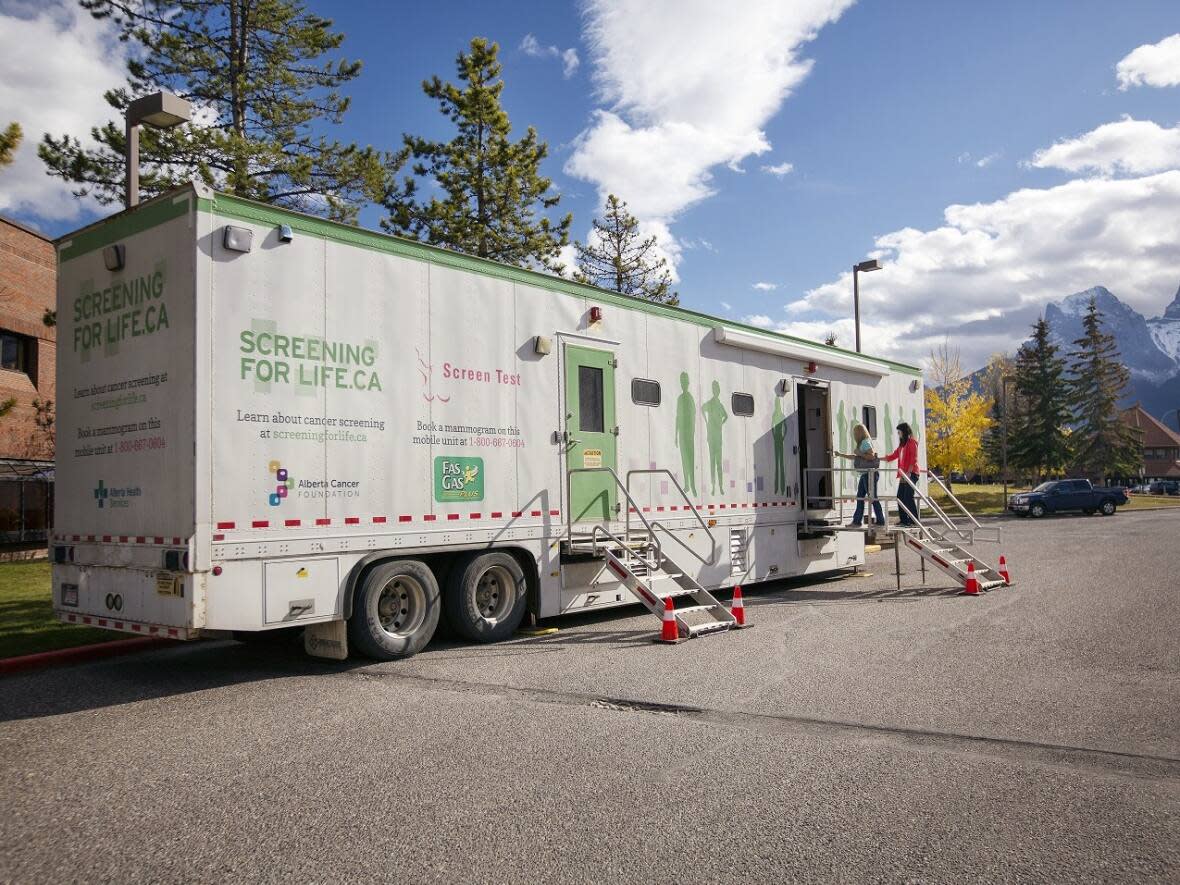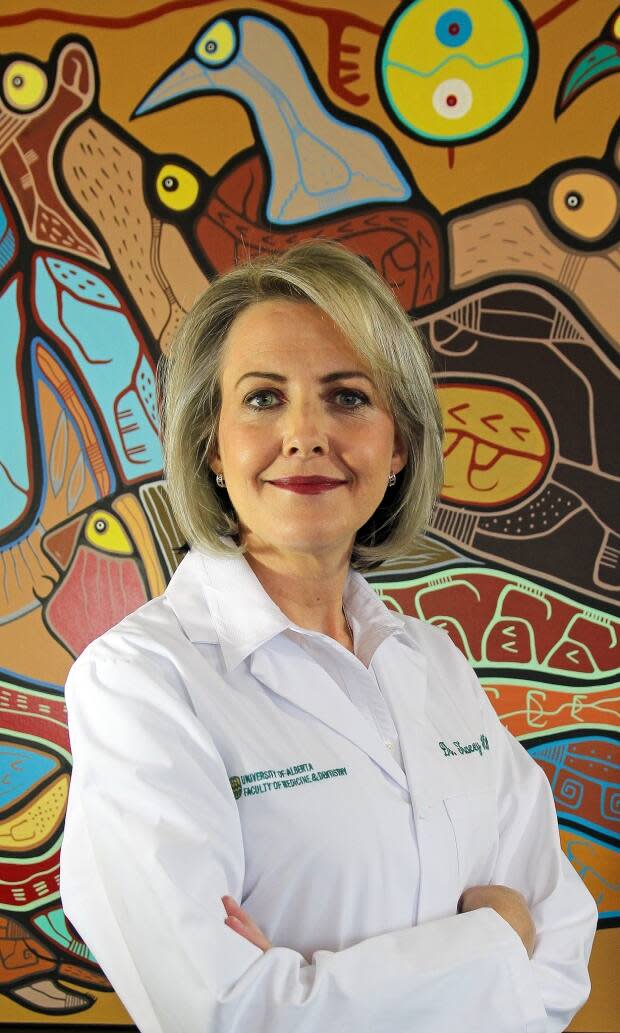Mammogram trailer gives safe space for women at Enoch Cree Nation to get screened

A mobile mammogram clinic is on the road with a two-day stop at Enoch Cree Nation giving Indigenous women a chance to get screened for breast cancer.
The goal of the clinic, which runs today and Thursday, is to provide a space for Indigenous women to have positive experiences with Alberta's health system, says Dr. Tracey Hillier, a radiologist from the University of Alberta.
"It's just about catching breast cancer when it's curable and we want to provide every opportunity for better health for our Indigenous communities, rural communities … everybody in Alberta," Hillier said.
Hillier is Mi'kmaq and a member of the Qalipu First Nation in Newfoundland.

Mobile mammogram clinics aren't new; they launched in Alberta back in 1991 and have made annual stops on reserve at Enoch Cree Nation for more than a decade.
Alberta Health Services is now equipped with two trailers, each with their own digital mammography machines. The trailers travel to 122 rural communities across the province, with only 28 stops on Indigenous reserves.
According to Hillier, not having a family doctor, feeling uncomfortable due to language barriers and a history of traumatic experiences can all make Indigenous women feel like they don't belong in larger hospitals.
Hillier said that most Indigenous cultures don't believe in following strict timelines.
"To run our clinics on a tight schedule is actually a very colonial way of doing business," she said.
"It's not recognizing that sometimes a woman is juggling a lot to get in here and if she comes an hour late, we really wanna do what we can to provide the service that we're intended to."
Bringing mammography resources into communities helps remove these barriers in a way that's convenient for Indigenous women who would have to commute a long way to get into Edmonton's downtown core, Matthew Gutsch, a spokesperson for Indigenous Services Canada, told CBC in a statement.
The mobile clinic lets Indigenous women access the healthcare they need while avoiding the stress of unfamiliar city traffic and scheduling issues, said Gutsch.
'A safe and ethical space'
Many Indigenous women work as care-givers not only for their own children, but often for their extended family and neighbours as well, says Enoch Health Services external health director Colleen McDonald.
McDonald, whose stepmother died from breast cancer, says these family commitments make it harder for women from Enoch Cree Nation to show up on time for their own medical appointments.
Getting tested for any disease away from your home community is also a fear-inducing experience for some women who may already distrust Alberta's healthcare system, McDonald added.
"When you're reading a screening for cancer, it can be scary and intimidating," she said.
But ever since mobile mammograms became accessible on reserve at Enoch Cree, McDonald has seen an uptick in the number of women showing up for their appointments.
"This is what we need in our community," said McDonald.
"It provides a safe and ethical space for women to come and be screened."

 Yahoo Movies
Yahoo Movies 
